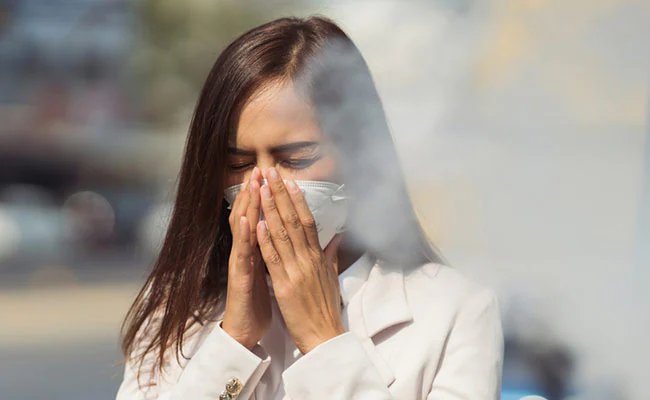Air pollution isn't just bad for your health; it can also harm your hair and skin. The more your skin is exposed to air pollution, the more damage it can suffer. It's important to note that pollution doesn't immediately affect your skin but gradually degrades its quality over time. Taking measures to protect your skin early on is crucial.
Dr. Ajita Bagai Kakkar, Associate Director of Dermatology at Max Multi Speciality Centre, Panchsheel Park, explains that smog, smoke, and pollution can damage the skin similar to sun exposure, causing issues like dryness, allergies, dermatitis, and eczema flare-ups. People may experience stinging, parched dry skin, especially on the face and neck, and find that moisturizers are less effective during polluted times.
She adds, “This leads to itching, uneven skin tone, and sometimes pigmentation. Patients with atopic dermatitis may experience flare-ups, and dry, scaly lips are another problem associated with dry skin and pollution.”
Understanding the harm that skin pollution can cause is crucial. Dr. D M Mahajan, Senior Consultant in Dermatology at Indraprastha Apollo Hospitals, points out that air pollution contributes to skin pigmentation issues, including hyperpigmentation and melasma. Prolonged exposure to pollutants like particulate matter and volatile organic compounds can lead to overproduction of melanin, causing skin discoloration.
For those with existing hyperpigmentation or melasma, air pollutants can worsen the condition, making the skin more prone to dark spots and uneven pigmentation. Pollutants with inflammatory properties can activate melanocytes, contributing to pigmentation disorders. The oxidative stress further worsens the impact of air pollution on skin health.
To understand and counteract the impact of air pollution on skin pigmentation, adopting a comprehensive skincare routine is crucial. This includes using sunscreen, products rich in antioxidants, and gentle cleansing techniques to mitigate the adverse effects of environmental pollutants. Additionally, promoting sustainable environmental practices and reducing personal exposure to polluted areas can help prevent and manage skin pigmentation disorders caused by air pollution.

















